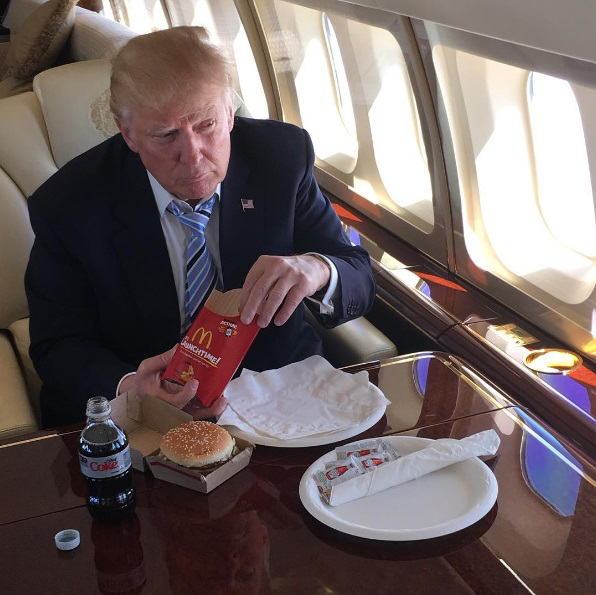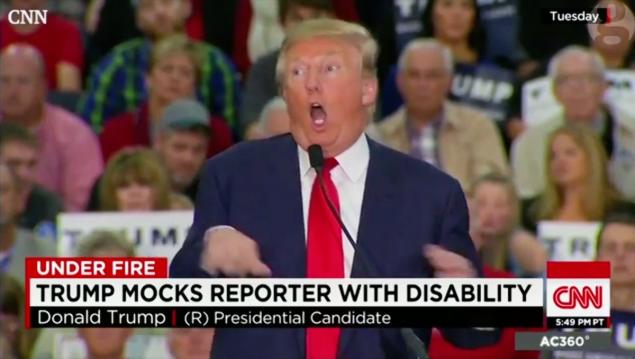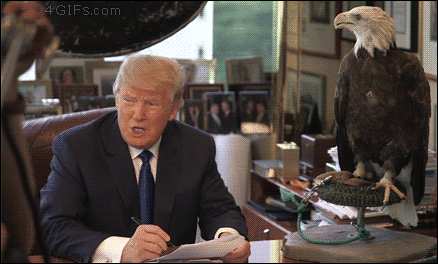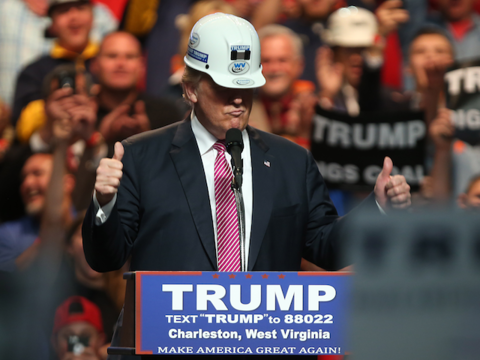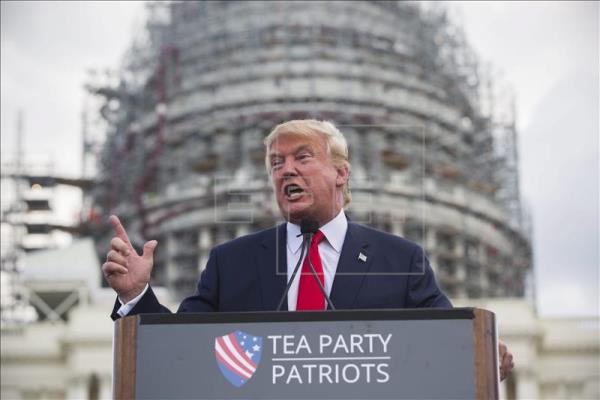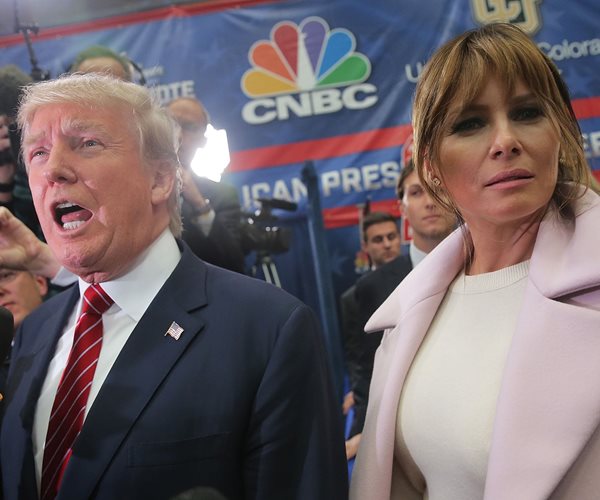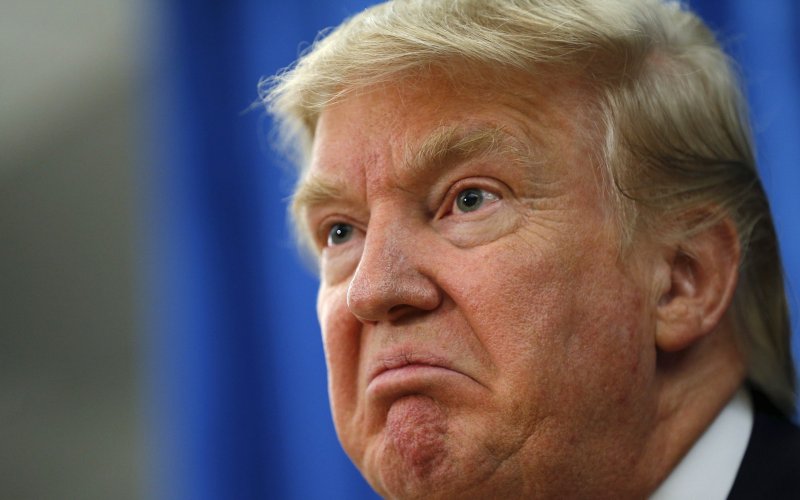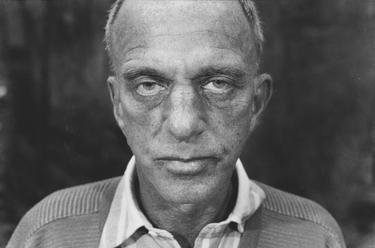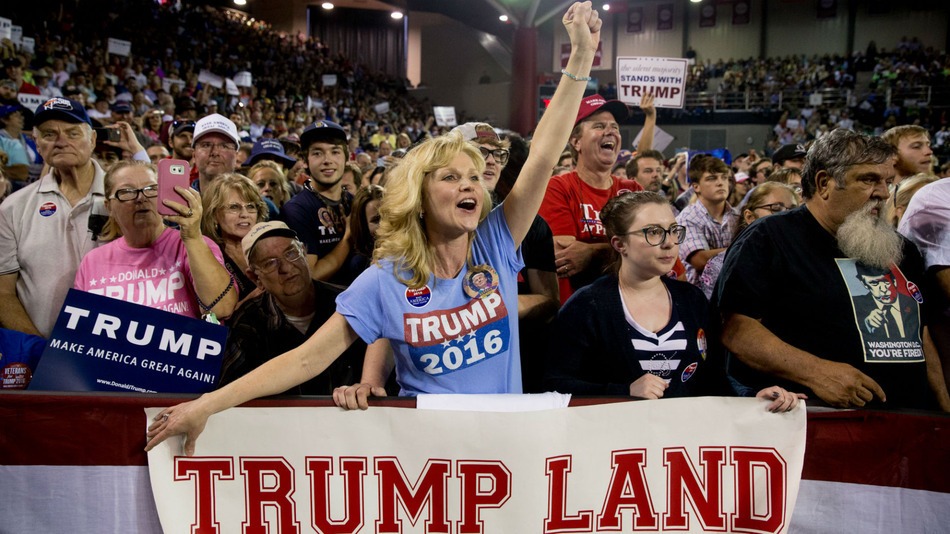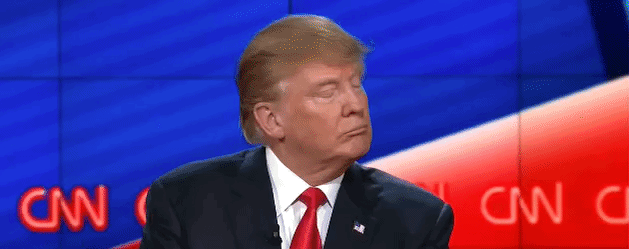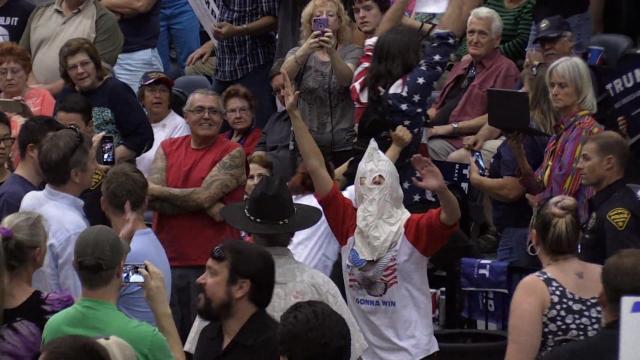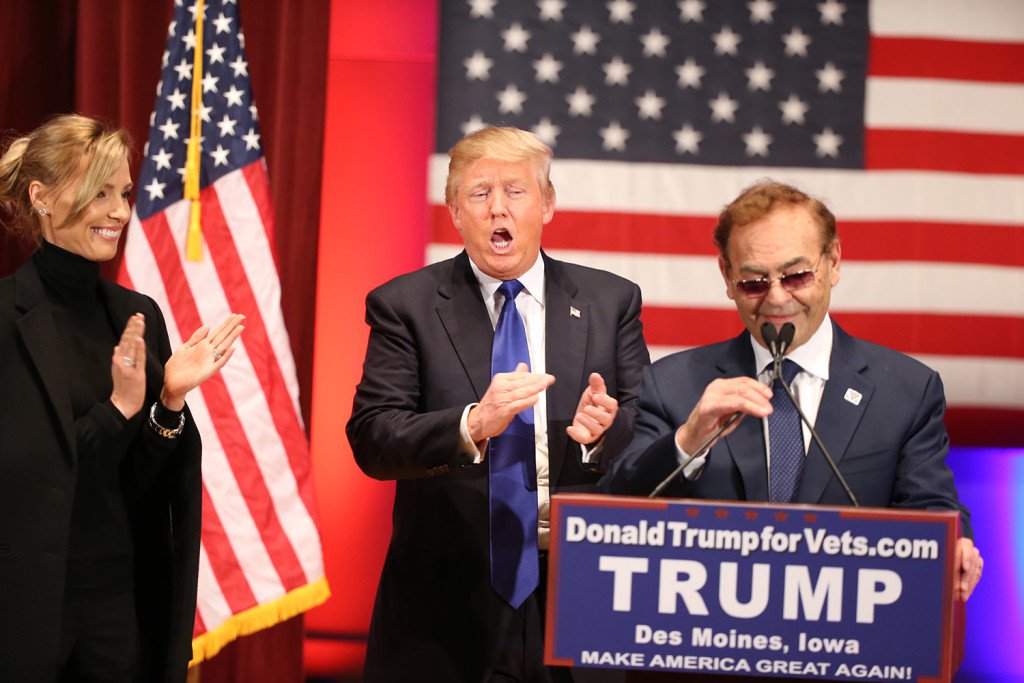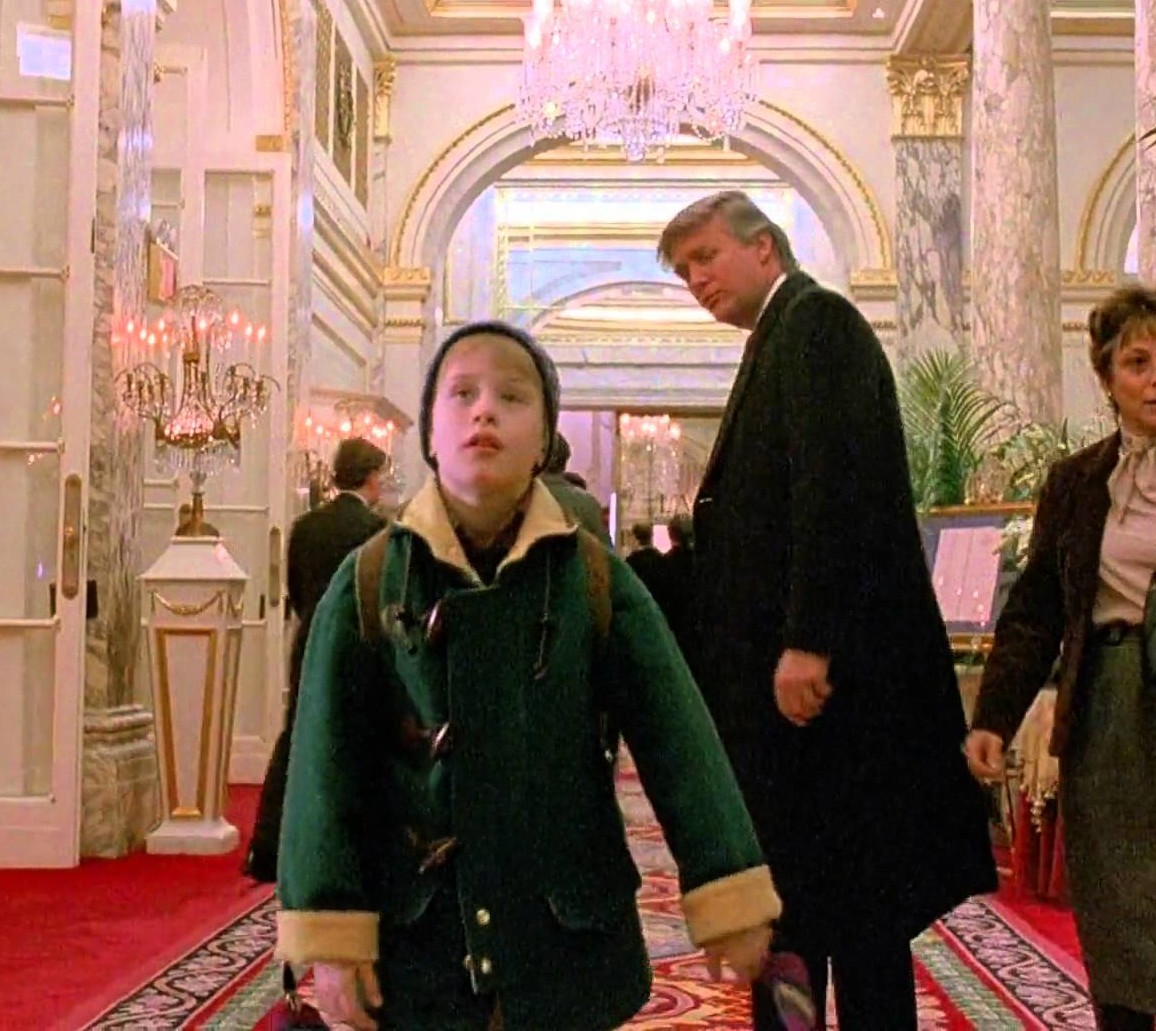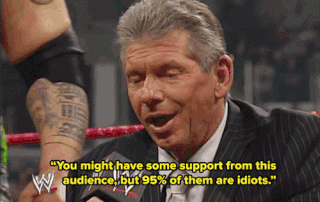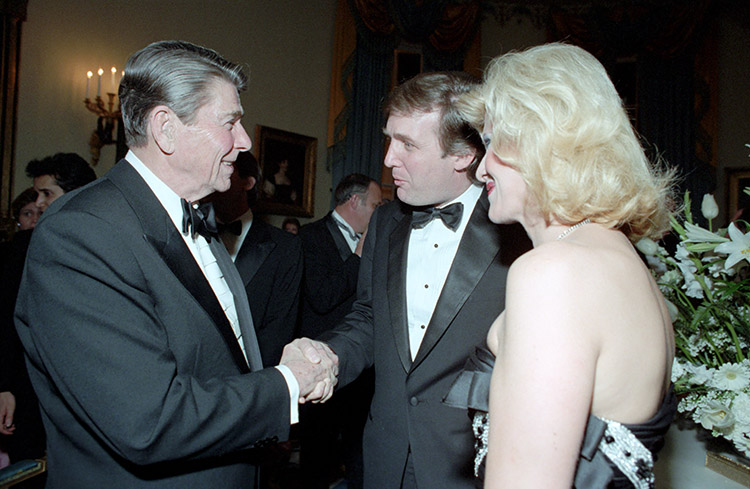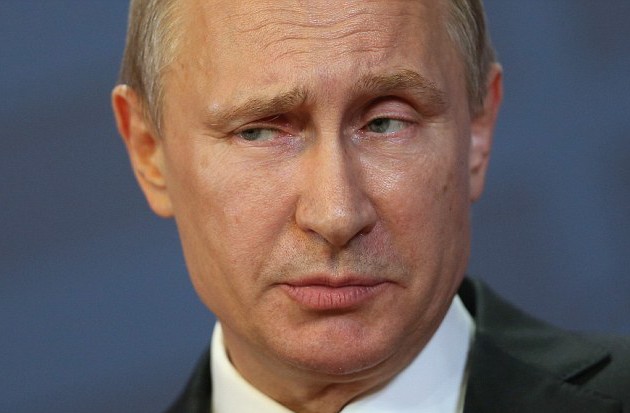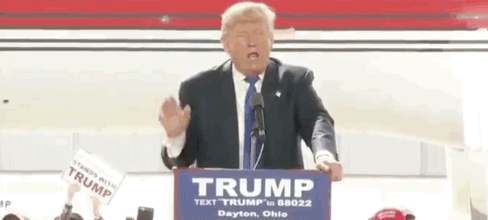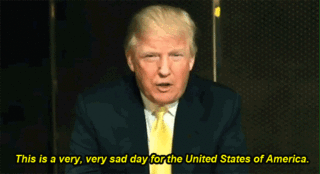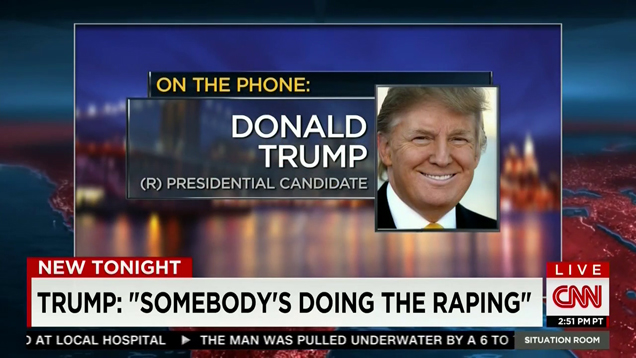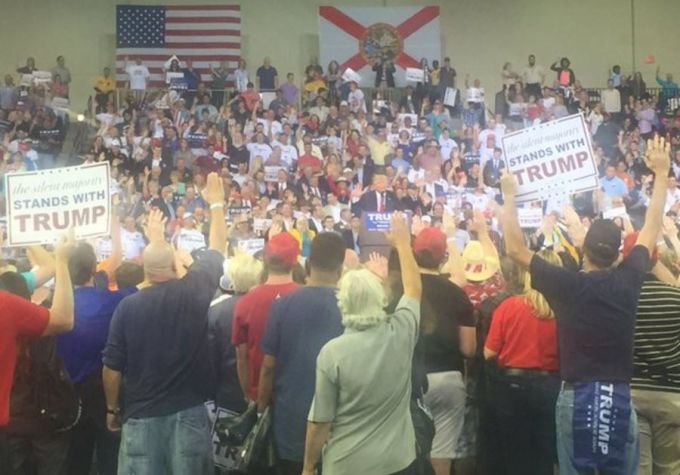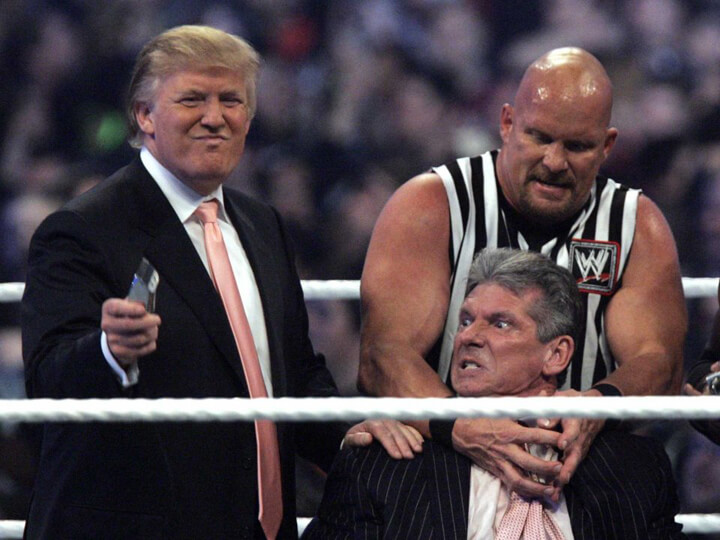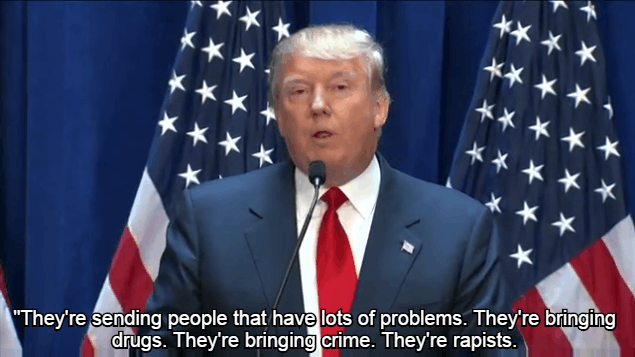Donald Trump, the Dumpster fire of American politics, is sad despite all the Happy Meals. His immense psychological wounds and elephantine ego cause him to receive concerns about ISIS terrorism and needling about his defunct line of steaks with equal gravity. He’s incapable of staying on message, and since he will be besieged about his dicey business practices between now and November–just read the new USA Today article about all the working people he’s allegedly stiffed–his campaign will be scattershot in an unprecedented way.
Michael D’Antonio, author of The Truth About Trump, has spent a good deal of time interviewing Bull Connor as a condo salesman as well as his family members, with Donald Jr.’s comments about his “genetic superiority” particularly telling. The journalist shared his findings in an Ask Me Anything at Reddit. A few exchanges follow.
Question:
Do you think Trump has a sense of morality?
Michael D’Antonio:
Good question. He understand right and wrong on a basic level, but he doesn’t have a lot of empathy for other people. He judges every situation on the basis of how it affects him.he also will take things to extremes…to places where others won’t go…in order to get what he wants. Related to this is an exchange I had with him about his criticism of a famous elderly actress. Kim Novak. He tweeted horrible stuff about her. I asked him about it and his reply was “I don’t think I got into a lot of trouble for that.” He didn’t understand that he hurt her and that was what I was asking about.
Question:
In your opinion, how much of the Trump persona that the average person sees is authentically him and how much of it is an act?
Michael D’Antonio:
It’s weird…much of what we see on the campaign trial is authentic. He is very opinionated and believes very strongly that he is one of the most intelligent and talented people in the world. Seriously, in the world. So all the bluster is real.
Question:
What about that casino? How did he fail to take money from suckers on that one?
Michael D’Antonio:
Strange isn’t it that he was in a business where the “house” always wins, and somehow he lost. The big problem there was that he got overextended with construction. He ran up huge debt he couldn’t service. Also, Trump is a good deal maker but a so-so operator of businesses. He gets bored with managing complex service industries and doesn’t do well.
Question:
What’s the secret to stopping him?
Michael D’Antonio:
I think the key to stopping him is gentle mockery. It would be a bad idea to get down in the gutter with him. Nicknames and wild accusations wouldn’t work. But if a candidate points out his deficiencies, and keeps reminding voters of his failures including Trump U and the bankruptcies, he will feel provoked and do self destructive things.
Question:
How was it meeting and interviewing all of his family members? Any big surprises there?
Michael D’Antonio:
His kids are smart, and well spoken. I was pretty shocked, though, when Donald Jr. told me that the family believes that people are like “racehorses” and that breeding is what matters. he said he was the product of the breeding of a high quality mother and a high quality father so he was genetically destined to succeed at a high level. Very weird stuff to say on the record. His wife Ivana was interesting. She started to tell me she thought that Donald could be explained as a guy who was never loved and sought to make up for it by seeking attention from the world. Then she stopped and said, “You know, I don’t really understand him at all.” She’s known him for forty years and still doesn’t get him.
Question:
What is the truth about Trump in one sentence?
Michael D’Antonio:
The Truth About Trump is that he is a damaged man, with an enormous ego, who wants the prize of the Presidency because it’s the biggest thing he could possibly go for.•

